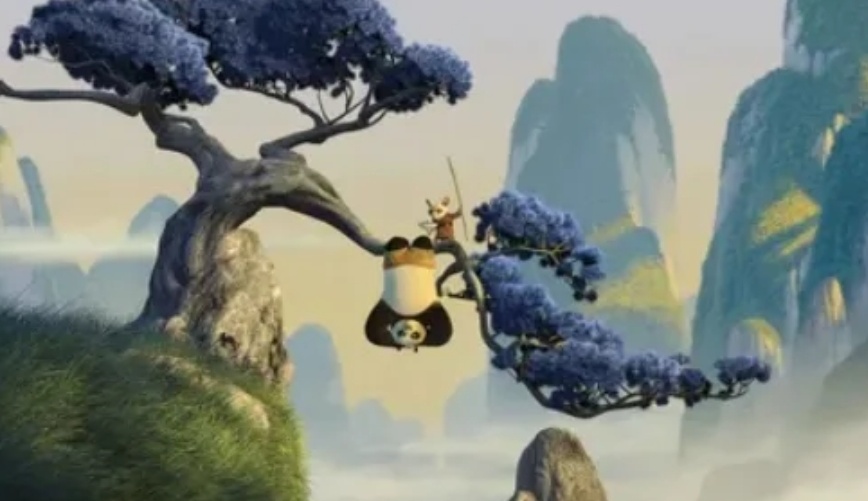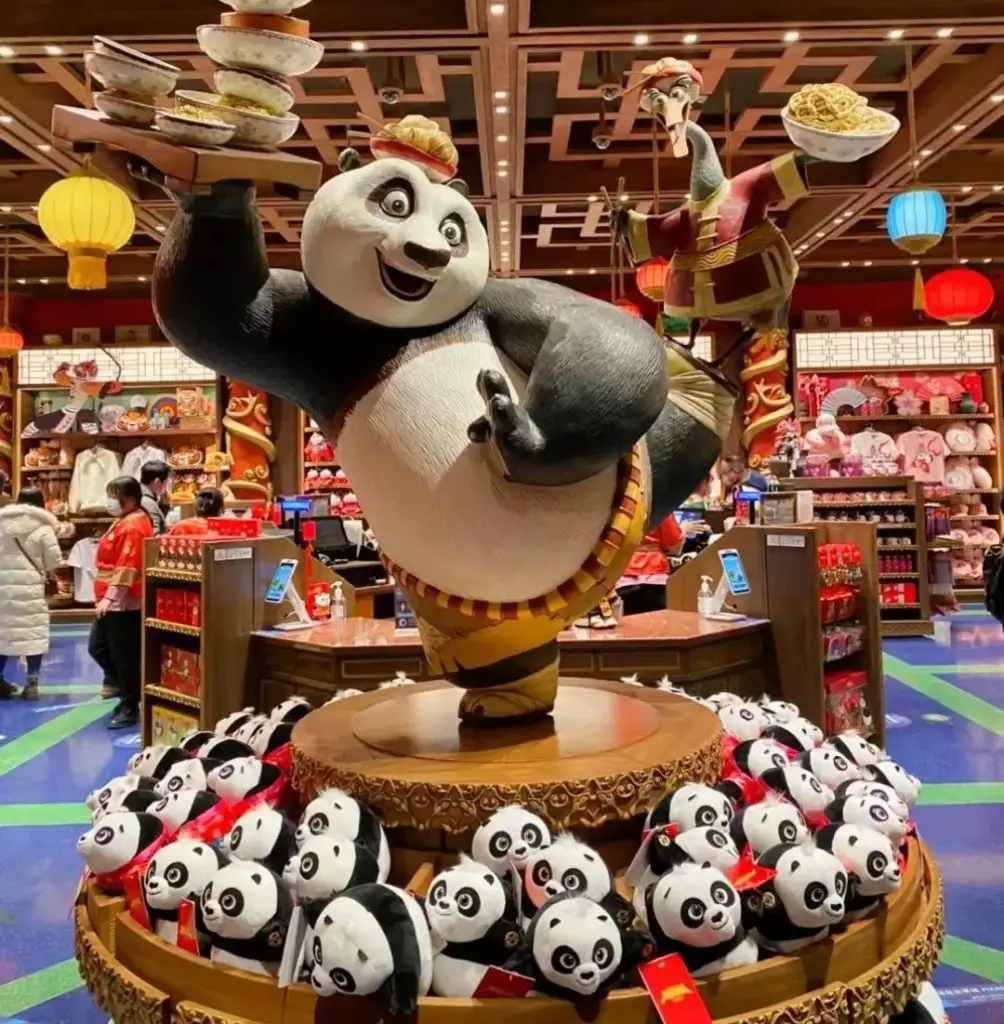I can tell you that to the best of my knowledge, Kung Fu Panda is not banned in China!
In fact, the film was very successful in China and was well-received by both audiences and critics.
The movie’s themes of perseverance, determination, and self-discovery resonated with many viewers in China.

However, it’s worth noting that Chinese artists and scholars are criticizing “Kung Fu Panda 2” for allegedly twisting Chinese culture and being a tool to “kidnap” the minds of Chinese people.
Avant-garde artist Zhao Bandi has launched a boycott campaign, while academic Kong Qingdong calls it a “cultural invasion.”
This is not the first time Zhao has spoken out against the franchise, as he sued the producers of the first film in 2008.
However, the film was successful in China, and the sequel was even based on trips to China for research.
Some Chinese netizens are criticizing Zhao for using the controversy to promote his own work, as he has long used pandas in his art and designs.
Why China Cared About Kung Fu Panda?
1. The Cultural Significance of Kung Fu Panda:
Kung Fu Panda has become an important part of Chinese culture because it showcases Chinese traditions and values.
- The movie is set in ancient China and features characters such as Master Shifu, a panda who is a kung fu master, and the Furious Five, a group of five kung fu masters who are also animals.
- The movie also features Chinese music and art, which adds to its cultural authenticity.
- The movie draws inspiration from the Yellow Mountains and the Li River Valley, two places in China known for their natural beauty. More off-the-beaten-path places here.
- Additionally, the concept of a vagabond martial arts master, a key element in the movie, is an important aspect of wuxia media, a genre of Chinese media that has evolved throughout Chinese history. In wuxia media, martial arts masters and their disciples have distanced themselves from the formal structures of government and society and live by their own code of honor in the martial arts world, known as Jianghu.
- The movie also incorporates important cultural symbols, such as the guandao sword, famously wielded by Guan Yu of Three Kingdoms fame, and the blue-patterned white porcelain bowls, originally made for the Islamic market using cobalt pigment imported from Persia.
Overall, “Kung Fu Panda” has successfully captured and depicted important aspects of Chinese culture, contributing to its popularity and cultural significance in China.


2. The Success of Kung Fu Panda in China:
Kung Fu Panda’s success in China can be attributed to its authenticity and cultural significance.

- Kung Fu Panda was very well-received in China, where it was praised for its depiction of Chinese culture and values.
- The movie was dubbed into Mandarin Chinese, and the voice cast included some of China’s top actors, which helped to further its appeal.
- The movie also spawned a successful franchise, with two sequels and a television series.
- Kung Fu Panda merchandise, such as toys and clothing, are also popular in China. (Kung Fu Panda Hotel in Universal Studio Beijing Resort is super hard to book.🔥)
- Unlike other animated movies that are produced solely for entertainment, Kung Fu Panda showcases and celebrates Chinese culture and traditions.
- The movie also features strong, relatable characters that audiences can connect with.
3. “Kung Fu Panda” Sparks Criticism of China’s Film Industry Controls:
The movie “Kung Fu Panda” has become a huge success in China and has caused Chinese filmmakers to question why their own film industry can’t create such a film.
- Wu Jiang, president of the China National Peking Opera Company, wonders why China couldn’t produce a film that is faithful to Chinese culture and full of good humor like “Kung Fu Panda”.
- Lu Chuan, a young film director, applauds “Kung Fu Panda” for its fresh and rich take on Chinese culture but criticizes the government for stifling the creativity of Chinese filmmakers. He believes that more space should be given to Chinese artists to allow for more innovation, which would ultimately give China greater cultural influence abroad.
Controversy Surrounding Kung Fu Panda’s Portrayal of Chinese Culture
Kung Fu Panda, an animated movie released in 2008, sparked controversy for its portrayal of Chinese culture.
While some people found the movie to be entertaining and not offensive, others believed that the characters were stereotypical and did not accurately represent Asian culture.
The film’s co-director, Mark Osborne, aimed to understand Chinese culture in order to create an authentic representation of it.
- For instance, when Po throws a dumpling in the air, his master bows to him, and the sound of it landing in a bowl off-camera can be heard. Despite the filmmakers’ efforts to pay attention to detail, Hollywood was accused of exploiting Chinese culture.
- The film’s animators studied kung fu to ensure that the animals chosen for the Furious Five’s martial arts moves were accurately portrayed. DreamWorks Animation, the studio behind the movie, infused Chinese culture into each aspect of the film, even in its more literal forms. The movie’s title refers to the spirit of yin and yang, as well as kung fu and a panda.
Learn the story behind Panda's favourite food Bamboo 🎍FAQs:
No, “Kung Fu Panda” is not based on Chinese folklore or mythology. It is a Hollywood animated movie created by DreamWorks Animation.
Chinese people generally enjoy “Kung Fu Panda” as a fun and entertaining movie.
However, some people criticize the film for perpetuating stereotypes about Chinese culture and kung fu.
No, there is no real “Kung Fu Panda” in Chinese culture. The character of Po is a fictional creation.
The moral of “Kung Fu Panda” is that anyone, regardless of their background or perceived limitations, can achieve great things through hard work, determination, and self-belief.


